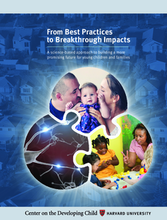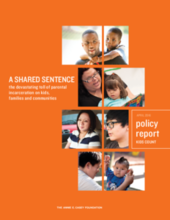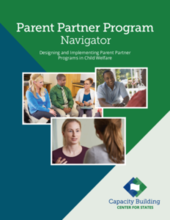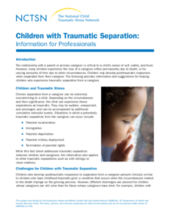Displaying 331 - 340 of 437
This study investigated the widely-used but under-researched program for training resource parents (i.e., foster, adoptive, or kinship parents) known as preservice PRIDE (Parent Resources for Information, Development and Education). The sample consisted of 174 participants in Ontario, Canada.
The state of Kentucky in the US has implemented a new program for youth aging out of foster care called 'Fostering Success.' The program “places young adults aged 18 to 23 in a 10-week office job at a local branch of the Kentucky Department for Community Based Service,” according to the article.
This report from the Center on the Developing Child at Harvard University provides an overview of the science of early childhood development, particularly brain development and the impacts that early experiences have on brain development.
The Standards of Quality for Family Strengthening & Support are designed to help ensure that families are supported and strengthened through quality practice.
This policy report from Kids Count outlines the impacts that parental incarceration has on children, and on communities as a whole, particularly in the context of mass incarceration in the United States. The report concludes with recommendations for investing in families to mediate the detrimental effects of parental incarceration, which disproportionately affects people of color in the United States.
The Parent Partner Program Navigator guides child welfare administrators, staff, and parent leaders through key components of designing and implementing successful parent partner programs. Developed collaboratively with experienced parent partners and program coordinators, the Navigator offers guidance and capacity building resources based on research, practice experience, and implementation science.
This three-part video series shows how a fictional organization, Greene County Department of Human Services, set out to improve permanency for children and youth by increasing the number of available foster and adoptive homes using data-driven decision making (DDDM).
This guidance from the National Child Traumatic Stress Network provides information and suggestions for helping children who experience traumatic separation from a caregiver.
This is a community violence informational document for youth. It discusses the impact that community violence has had on the lives of young people and provides tips on how young people can look out for their safety.
This document is a community violence checklist for youth. It helps young people asses the level of community violence in their lives.






